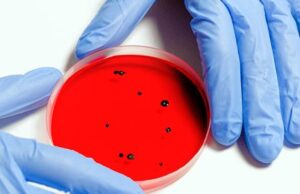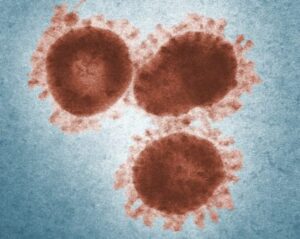Title: Navigating Norovirus: Understanding Duration and Recovery
Introduction: Facing the discomfort of a norovirus infection can be challenging, and understanding its timeline is essential for managing symptoms and recovery. This article dives into the world of norovirus, shedding light on how long the infection typically lasts, what to expect during its course, and steps you can take to facilitate a smoother recovery.
- The Norovirus Experience: Onset and Symptoms: Norovirus, often referred to as the “stomach flu,” is notorious for causing gastroenteritis, leading to symptoms such as nausea, vomiting, diarrhea, and stomach cramps. These symptoms usually appear within 12 to 48 hours after exposure.
- The Duration Dance: How Long Does Norovirus Last? The duration of a norovirus infection can vary from person to person, but generally, the acute phase lasts for about 1 to 3 days. During this period, the intensity of symptoms is at its peak, causing discomfort and dehydration.
- The Ebb and Flow of Recovery: After the initial onslaught, the symptoms of norovirus start to abate. Most individuals begin to feel better within a few days, as the body’s immune system tackles the infection. However, some residual effects like fatigue or sensitivity to certain foods might linger for a short while.
- Contagion Concerns: When is it Safe? Norovirus is highly contagious and can spread through direct contact, contaminated surfaces, and even aerosolized particles from vomiting. Individuals are still contagious even after the symptoms subside, and the virus can be shed through stool for several days to weeks.
- Recovery Strategies: Navigating Towards Wellness: a. Hydration: Staying hydrated is crucial during and after a norovirus infection. Sip clear fluids, oral rehydration solutions, and electrolyte-rich beverages to combat dehydration. b. Rest and Nutrition: Allow your body to recover by getting plenty of rest and gradually introducing bland, easy-to-digest foods. c. Hygiene and Prevention: Prevent the spread of norovirus by practicing excellent hand hygiene, disinfecting surfaces, and avoiding close contact with others until you’re fully recovered.

- Seeking Medical Care: When to Consult a Professional: If symptoms are severe, persistent, or accompanied by high fever, blood in stool, or signs of dehydration, seeking medical attention is advisable. Certain populations, such as young children and the elderly, might be at higher risk for complications.
Conclusion: The journey through a norovirus infection can be trying, but knowing what to expect can make it more manageable. While the acute phase typically lasts for a few days, recovery and the return to your regular routine might take a bit longer. Prioritize self-care, hygiene, and prevention to avoid spreading the virus to others. Remember that if symptoms become severe or concerning, consulting a healthcare professional is always a wise decision.